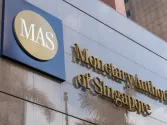
Indonesia's Islamic finance roadmap to spur growth of domestic sukuk market
Even smaller Islamic banks will benefit.
Moody's Investors Service says that the Indonesian government's Islamic finance roadmap will encourage consolidation among smaller Islamic banks in the country, and foster the development of a larger domestic sukuk market.
According to a release from Moody's Investors Service, despite growth rates in excess of 30% a year, the Islamic banking sector only captures a 5% share of the Indonesian banking system.
"The Indonesian government's Islamic finance roadmap should drive growth in the sector," says Khalid Howladar, Moody's Global Head of Islamic Finance.
"The roadmap will also support the consolidation of state-owned and commercial Islamic banks, which will in turn increase the size of the banks' capital bases, improve cost efficiencies, and allow increased underwriting in the corporate and infrastructure sectors," says Simon Chen, a Moody's Vice President and Senior Analyst for the Financial Institutions Group.
Here's more from Moody's Investors Service:
Chen says consolidation would also boost the banks' profitability levels and therefore their ability to generate internal capital and raise external capital. The higher profitability levels will in turn improve the attractiveness of the sector to investors; thereby driving growth in the sector.
Moody's analysis is contained in its just-released report titled "Islamic Finance: Indonesian Government Roadmap Will Drive Growth and Consolidation of Islamic Banks," and is co-authored by Chen and Howladar.
Moody's report says that since the end of 2005, Islamic banking assets in Indonesia have expanded at a 33% compound annual growth rate; outpacing growth in the conventional banking sector, the latter of which has also shown rapid growth against the backdrop of robust economic growth and the low penetration rate of financial services.
But despite this strong growth, Islamic banking assets comprised only 4.6% of total system assets as of November 2014 — up from 1.4% at the end of 2005 — and the number of Islamic banks increased to 12 from three.
The lack of a deep sukuk market in Indonesia has also limited the ability of Islamic banks in the country to raise non-deposit funding and match long-duration Islamic assets — such as home financings — with funding of similar duration.
Moody's report points out that Islamic banks operate less extensive branch networks when compared to conventional banks, and their capital bases are smaller. Such banks also mainly focus on riskier customer segments such as retail, micro enterprises and small and medium-sized enterprises, rather than corporates.
The riskier customer base has led to non-performing financing ratios that are consistently higher than the comparable non-performing loan ratios at conventional banks. These higher credit costs and smaller economies of scale make Islamic banking less profitable than conventional banking.
Moody's report also compares Indonesia's sukuk market with that of its neighbor, Malaysia. The report says that Malaysia's sukuk market is the largest and most liquid globally, with a deep institutional investor base.
This market took three decades to establish but has thrived over the last decade with the coordinated government support that Indonesia is now proposing.
Moody's report points out that Indonesia has an advantage in that it can look at policy initiatives globally and learn from the best practice of other jurisdictions, such as Malaysia.
The report also says that because Islamic finance is now commonplace among many Middle Eastern and Asian countries, there is now a much larger pool of stakeholders to support the global Islamic capital market; of which Indonesia is a key part.
According to Moody's report, Indonesia's large domestic population and affinity for Shari'ah-compliant finance makes it highly likely that the country will become a much more significant contributor to the Islamic capital markets in the future.
Moody's will be conducting workshops this year on Islamic finance. The workshop in Jakarta will be held on Thursday, 28 May, and the one in Singapore has been scheduled for Friday, 29 May.






















 Advertise
Advertise








